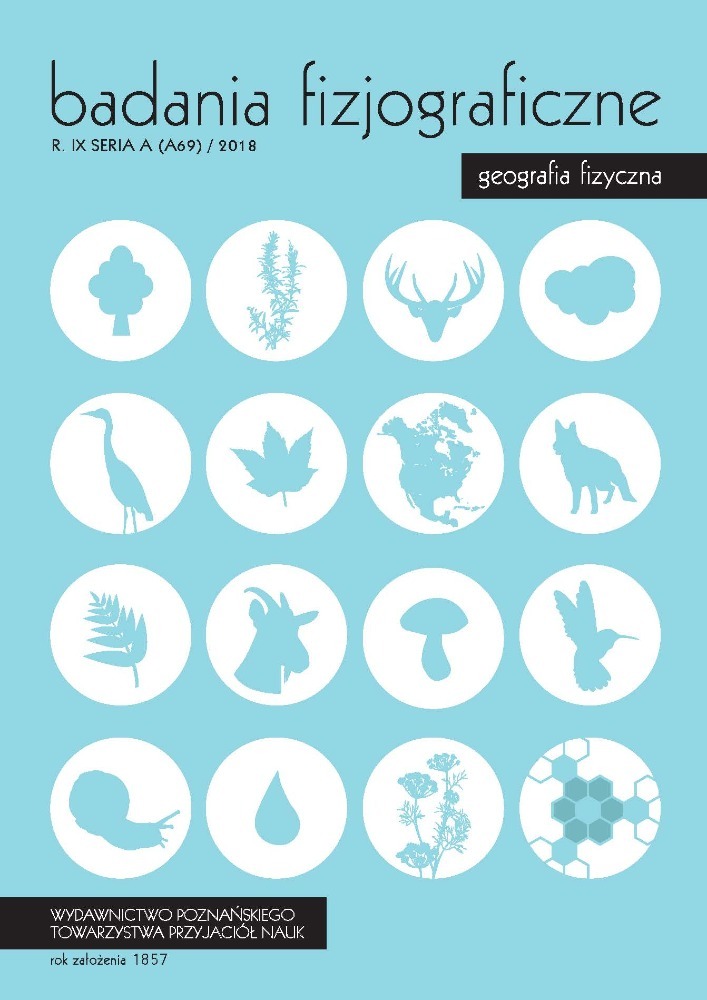Abstrakt
Geography is traditionally perceived as a discipline of science dealing with the spatial diversity of the outer shell of the earth, and the relations between its components and human activity (Tkocz, 2005). The identification of relations and correlations, constructing hypotheses and, finally, observations and measurements are among the most important skills of applying knowledge in practice (Regulation of the Ministry of Education of 14 February 2017 on the core curriculum). In a world of dynamic acquisition of factual knowledge, practical skills are gaining in importance, together with the ability to select information and search for it. Connectivity is the answer to contemporary trends in education, viewed as the theories of education, perceiving knowledge as a set of network connections between objects. In this perspective, learning is about establishing and developing such connections (Downes, 2017). This idea promotes abstaining from fact-based knowledge or even concept development and to look for facts, collect and process them. As part of “Łejery! What kind of weather is this?!” carried out by the school (project organizer), Faculty of Geographic and Geological Sciences (the content-related sponsor) and the Enea company (sponsor of the Enea Academy of Talents project), a self-organising map was created in accordance with the theory of constructivism. By means of measurements and exchanging information, the students can empirically and single-handedly acquire their own knowledge and practical skills.
Bibliografia
Czachorowski S., 2017: Tydzień cudów, czyli „Co tam, panie, w szkołach słychać?”, <http://czachorowski.blox.pl/html/page/4.html> [dostęp: 29.08.2017].
Downes S., 2017: Podłącz się, [w]: Ł. Badowski (red.), Konferencja Pokazać–Przekazać–Konektywizm: zamiast wędki dajmy sieć, <http://www.kopernik.org.pl/fileadmin/user_upload/PROJEKTY_SPECJALNE/Konferencja_Pokazac-Przekazac/Edycja_2017/PP_2017_Publikacja_ PP.pdf> [dostęp: 4.02.2018].
Dylak S., 2013: Architektura wiedzy w szkole, Wyd. Difin, Warszawa.
Frankowski M., 2015: Czy konektywizm jest szansą polskiej edukacji?, <http://www.cen.uni.wroc.pl/Pliki/Wydawnicza/21_wybrane_teksty/06_fanki.pdf> [dostęp: 7.01.2018].
Klus-Stańska D., 2000: Konstruowanie wiedzy w szkole, Wyd. Uniwersytetu Warmińsko-Mazurskiego, Olsztyn.
Program GLOBE w Polsce, <http://globe.gridw.pl/globe-w-polsce/program-globe-w-polsce> [dostęp: 16.03.2018].
Publications, <https://blog.globe.gov/web/guest/do-globe/publications/2016-2020> [dostęp: 24.05.2018].
Rocard report 2007, Science Education Now: A New Pedagogy for the Future of Europe, <https://www.eesc.europa.eu/sites/default/files/resources/docs/rapportrocardfinal.pdf> [dostęp: 10.01.2018].
Rozporządzenie Ministra Edukacji Narodowej z dnia 14 lutego 2017 r. w sprawie podstawy programowej wychowania przedszkolnego oraz podstawy programowej kształcenia ogólnego dla szkoły podstawowej, w tym dla uczniów z niepełnosprawnością intelektualną w stopniu umiarkowanym lub znacznym, kształcenia ogólnego dla branżowej szkoły I stopnia, kształcenia ogólnego dla szkoły specjalnej przysposabiającej do pracy oraz kształcenia ogólnego dla szkoły policealnej, <http://www.dziennikustaw.gov.pl/DU/2017/356> [dostęp: 25.02.2018].
Rundgren C.J., 2017: Implementation of inquiry-based science education in different countries: some reflections, Cult. Stud. of Sc. Educ., 1–9.
Siemens G., 2005: Connectivism: A learning theory for the digital age, Internat. Journ. of Instructional Technol. and Dist. Learning, 2(1), 3–10.
Tkocz J., 2008: Podstawy geografii społeczno-ekonomicznej: wykład teoretyczny, Wyd. Uniwersytetu Śląskiego, Katowice, 13–58.
WMO, 2015: Manual on the WMO Information System, World Meteorological Organization.
Licencja
PTPN ma prawa autorskie do tytułu czasopisma
 https://creativecommons.org/licenses/by-nc-nd/4.0/
https://creativecommons.org/licenses/by-nc-nd/4.0/
